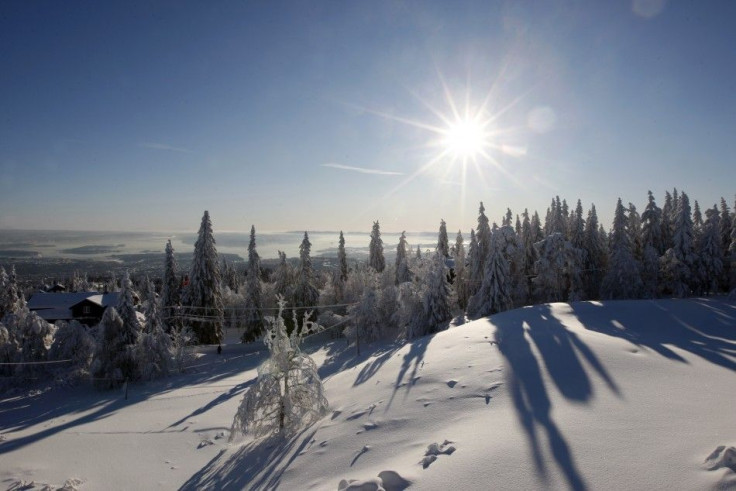Coronavirus In Scandinavia: Few Confirmed Cases, But Numbers Rising

KEY POINTS
- Iceland, a nation of only 370,000 people, has confirmed nine virus cases
- Up to 300 Icelanders are presently under quarantine in their homes
- Norway has reported 32 confirmed cases of coronavirus
Iceland, a nation of only 370,000 people, has already confirmed its ninth case of coronavirus infection.
On Tuesday, Vidir Reynisson, chief superintendent for the Department of Civil Protection and Emergency Management, said the ninth case was traced to Austria (where some 18 people have been infected).
“He was traveling with his family in Austria, and the family is now in quarantine,” Reynisson said. “We are tracing his travels. He communicated with other people.”
The other eight infections in Iceland comprised people who arrived on the Nordic island from Italy, including Icelanders on holiday. At least two of the nine cases flew to Iceland from through Munich, Germany.
On the whole, up to 300 Icelanders are presently under quarantine in their homes, including six workers from Landspitali National University Hospital in the capital Reykjavik.
Iceland’s Directorate of Health, in conjunction with the Civil Defense and Civil Service of the Foreign Ministry, has classified Italy as a “high risk area” although only the northern Italian regions of Lombardy, Veneto, and Emilia-Romagna have had a significant number of cases.
Icelandic authorities have also designated China, and Iran as high-risk areas.
As such, the country’s chief epidemiologist has advised Icelanders not to travel to South Korea, Iran, China and four provinces in Northern Italy (Lombardy, Veneto, Emilia-Romagna, and Piedmont), while recommending “special caution” when travelling to other regions of Italy, Tenerife in Spain, Japan, and Hong Kong.
Norway has reported 32 confirmed cases of coronavirus as of Tuesday, up from 25 on Monday, including five employees at Oslo University Hospital.
The Norwegian Institute of Public Health Director Bjorn Guldvog said on Tuesday that the country must prepare for more infections.
“We are entering a new phase of the coronavirus outbreak,” he said. “We must expect a greater risk of local spread in certain parts of the population. We therefore need to work closely with the public on how to manage this.”
He added that health authorities might not be able to trace all movements of infected people within Norway.
“We must therefore be prepared for infections in the population that we do not have full knowledge about from the outset,” he said.
Guldvog assured that Norway does not yet need to enact any drastic steps, like restricting large public gatherings or closing schools, etc.
“I would like to emphasize that we are not in that situation as per today. We do not have a difficult, ongoing infection situation. That is why we are not implementing these types of measures now, but we are continuously assessing this,” he said.
Denmark has confirmed six cases of the coronavirus, including two people who returned from a holiday in northern Italy on Saturday. Another two infected cases involved people who had visited Italy.
As of Monday, 127 people in Denmark were placed in quarantine at their homes.
The Danish Health Authority estimated that in a worst-case scenario as many as 500,000 people in the country (less than 10% of the population) could catch the virus, but the majority would not become ill enough to need health care services.
Scandinavia’s largest country, Sweden said its very first confirmed case, a woman who visited Wuhan, China, the epicenter of the virus, has recovered from her illness,
"The patient is in principle completely recovered and healthy," said deputy infectious disease doctor David Edenvik. "Because this is a new kind of infection we are very keen to collect as much data as possible, so the follow-up of these people is quite long.”
In total, Sweden has confirmed 24 virus cases, although no one is seriously ill.
"The general picture in Sweden, and now I'm saying what you know as well, is that people aren't that sick – but I can't speak [about] our [individual] cases," said Mikael Kohler, health director of Region Uppsala.
Everyone who has become infected thus far has returned from trips to Italy, Iran, China or Germany or were in contact with someone who visited those countries.
© Copyright IBTimes 2025. All rights reserved.





















